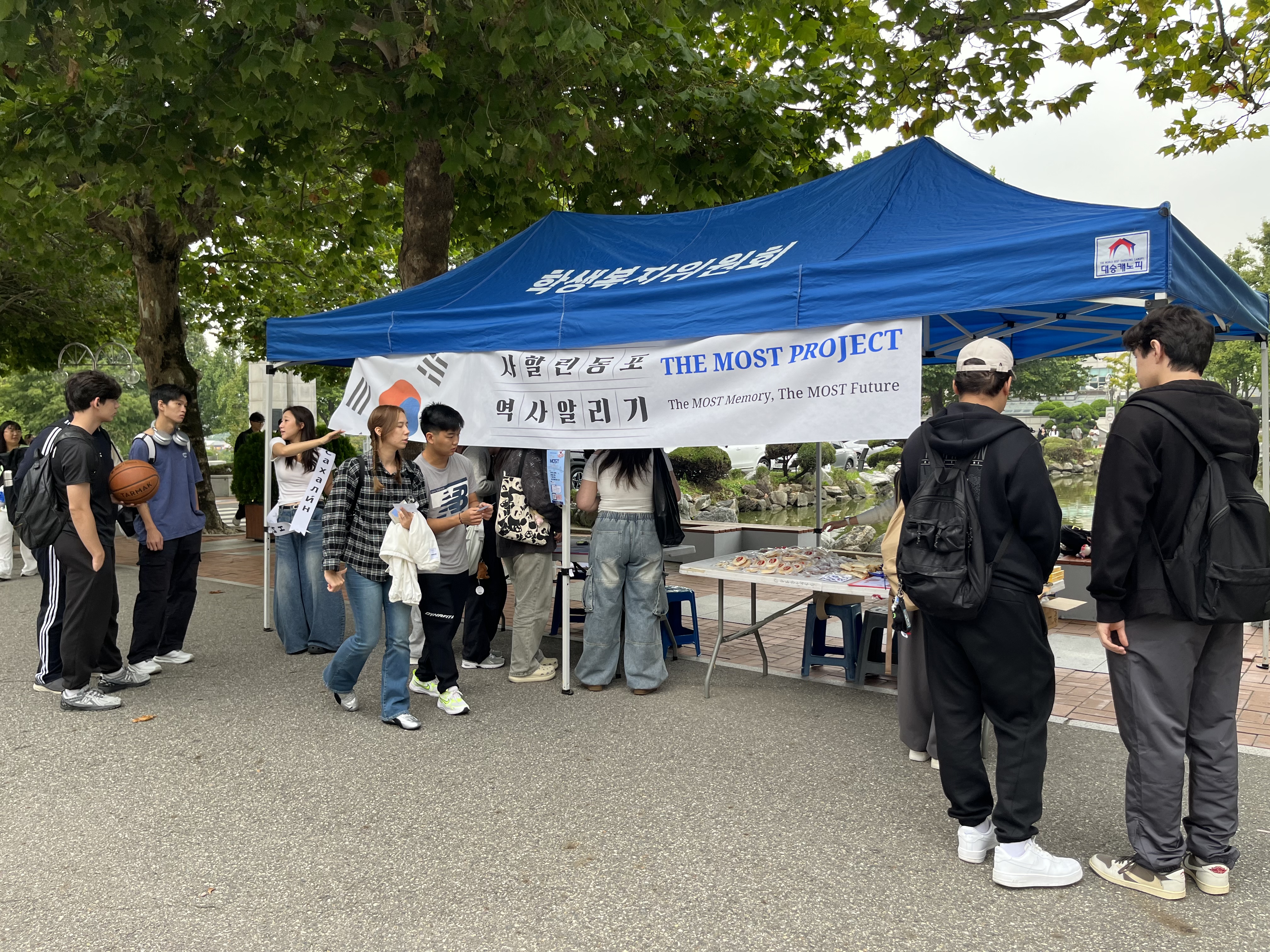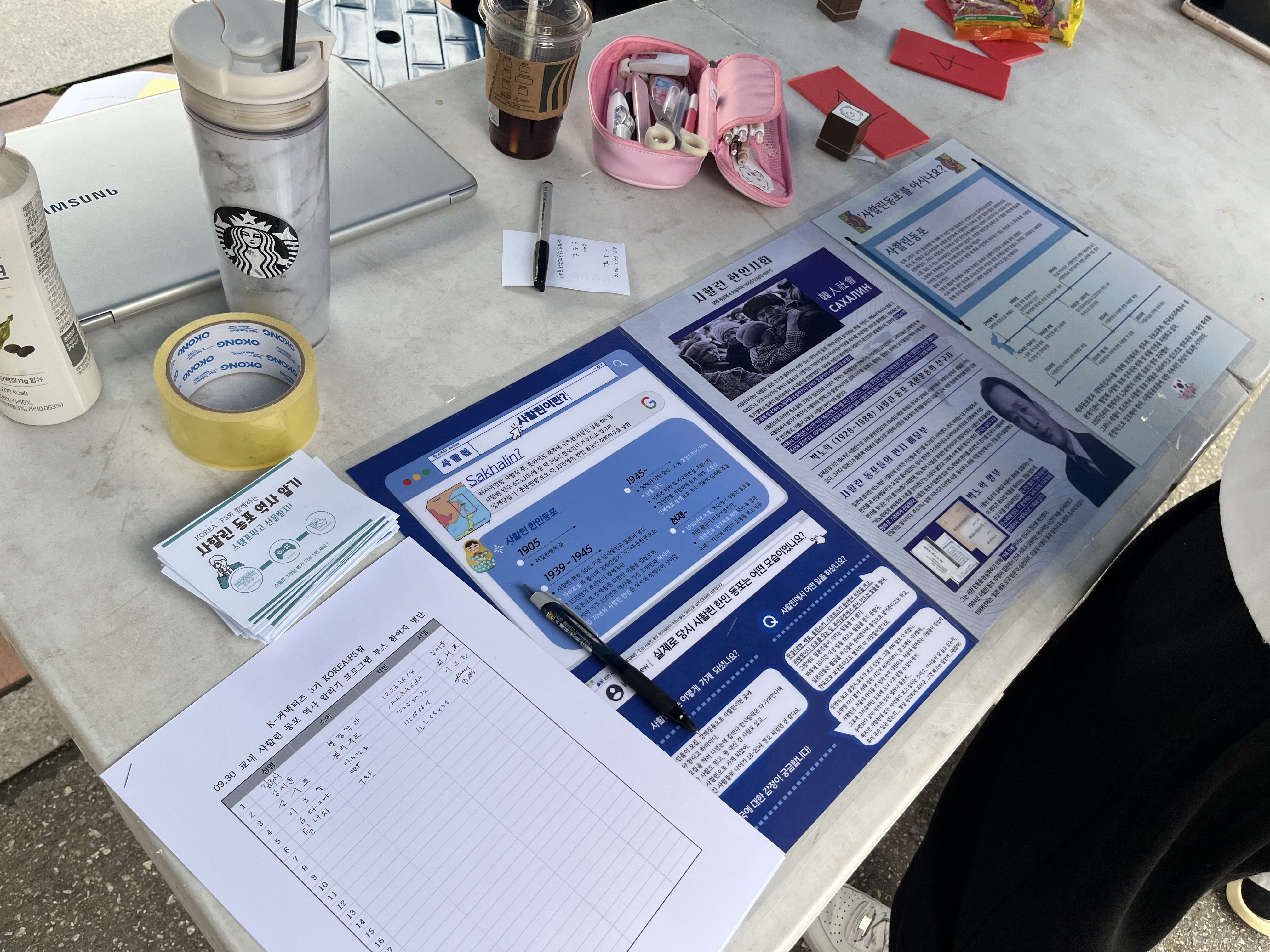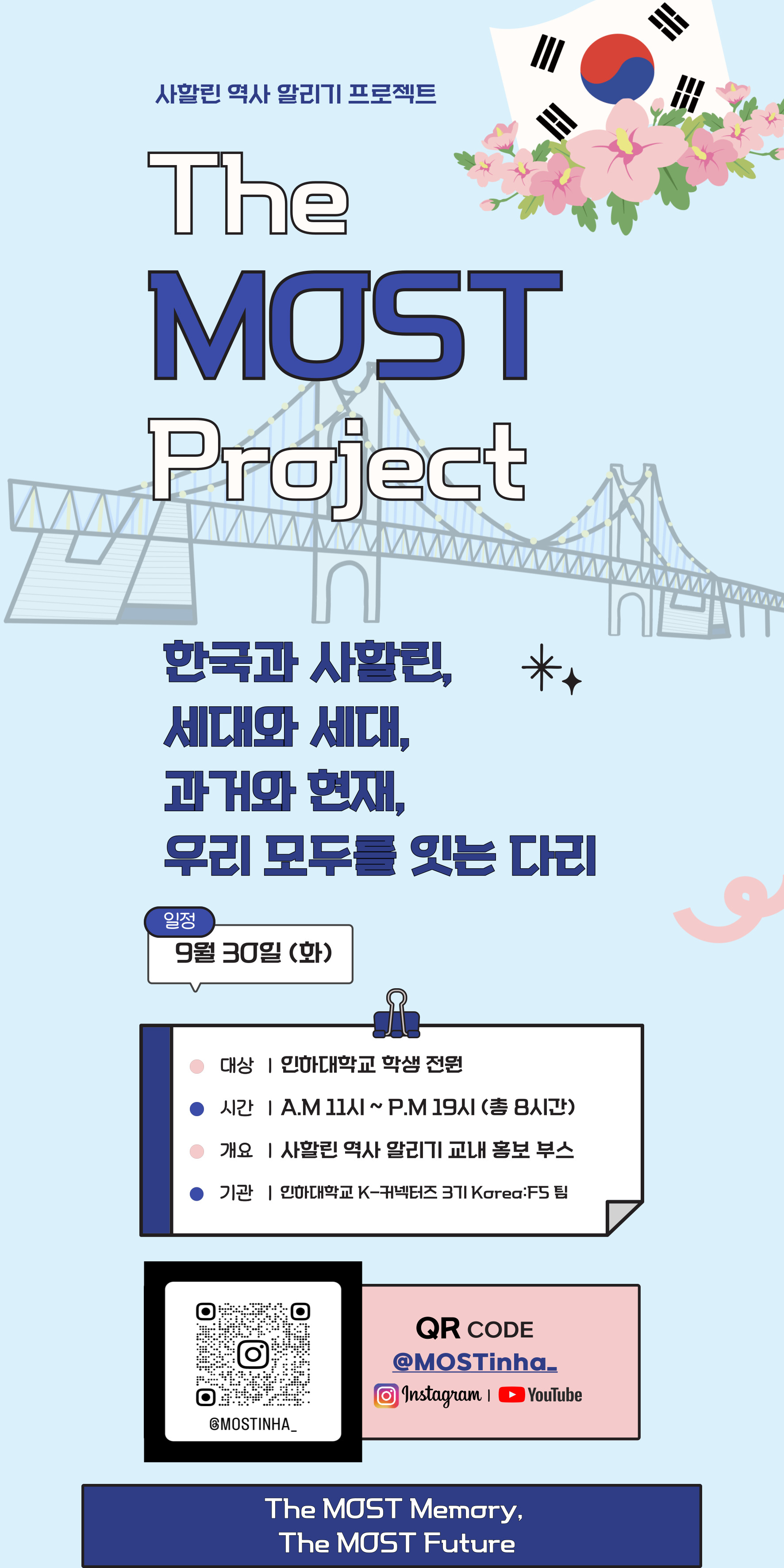K-Academic Diffusion Activities
K-Academic Diffusion Activities
K-Connectors 3rd Cohort Team KOREA:F5 Hosts Booth Event on Sakhalin Korean History
- Created 2025.11.03
- Author
- Views109
K-Connectors 3rd Cohort Team KOREA:F5 Hosts Booth Event on Sakhalin Korean History
On September 30, Team KOREA:F5 of the 3rd cohort of the K-Connectors held a booth event titled “Promoting the History of Sakhalin Koreans” in front of Inkyung Lake at Inha University. The event was organized in collaboration with the Incheon Namdong Sakhalin Center as part of a joint project. It aimed to introduce the history of Sakhalin Koreans and the coexistence of Korean culture to both domestic and international students at Inha University, while raising public awareness of this historical issue.
The event booth offered a variety of programs, including ▲Sakhalin Korean History Quiz, ▲experience of the Russian traditional game “Stone Hitting”, ▲merchandise sales, ▲poster exhibition on Sakhalin Koreans, and ▲“Message to Sakhalin Koreans” memo activity. Those students who participated in the quiz and other experiential activities were able to learn about the historical background of Sakhalin Koreans and had the opportunity to build cultural empathy and understanding.
In particular, the event was designed around the concept of “participatory history education,” allowing students to experience historical facts directly through interactive games and discussions, rather than simply viewing an exhibition. A hands-on activity combining the Russian traditional game and Korea’s “Stone Hitting” received enthusiastic responses from participants. In addition, all participants who completed all programs received commemorative merchandise by collecting stamps.
 |
 |
This project was designed to highlight the history and social realities of Sakhalin Koreans and to convey a part of modern Korean history to younger generations. Sakhalin Koreans are ethnic Koreans who were forcibly relocated to Russia’s Sakhalin region during the Japanese colonial period, along with their descendants. Even after Korea’s liberation, many were unable to return home, experiencing cultural disconnection and social marginalization. Although a repatriation program began in 1992, it was limited to first-generation migrants, resulting in family separation issues. Support for settlement and social integration for Sakhalin Koreans is still inadequate.
Building on this event, Team KOREA:F5 plans to continue implementing various Korean Studies programs aimed at improving public awareness of Sakhalin Koreans and fostering intergenerational understanding. In addition, the team will regularly share updates on the project and Sakhalin Korean-related content through their Instagram account (@mostinha_), combining these efforts with online promotion activities.
Instagram : https://www.instagram.com/mostinha_/

Instagram : https://www.instagram.com/mostinha_/



